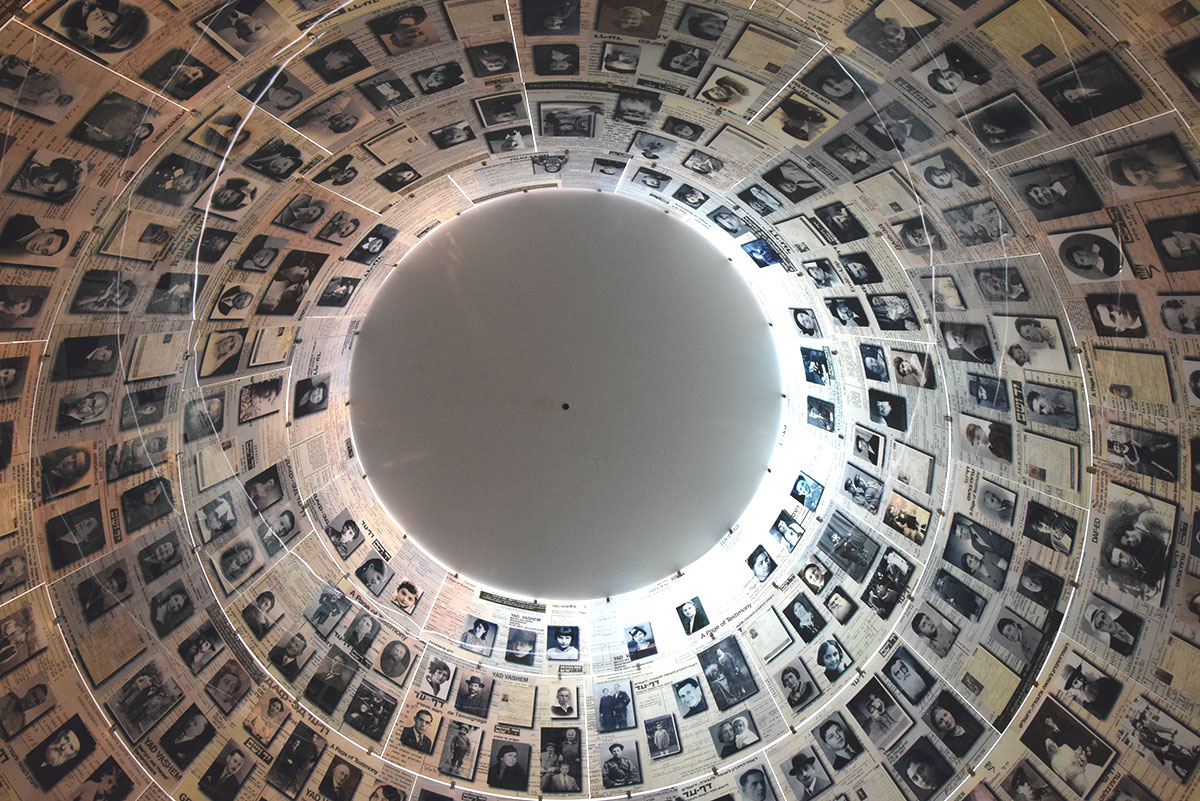
Hall of Names
"I should like someone to remember that there once lived a person named David Berger," in David's last letter, Vilna 1941
How do we remember our loved ones – our family, our friends? For many Holocaust survivors and their families there are no pictures, no letters, and certainly no marker in the cemetery. For millions more their names and identities are still lost to us. Entire families, communities, cities were destroyed in the Shoah, leaving no one behind to remember them.
For 60 years, Yad Vashem has endeavored to give each and every one of the victims of the Holocaust a name and an identity - to restore a modicum of their dignity, to recall each one individually. Yad Vashem has worked tirelessly to collect and commemorate the names of men, women and children who were murdered by the Nazis and their collaborators and has thus far identified by name 4.3 million out of the 6 million victims. Individuals submit handwritten Pages of Testimony in memory of loved ones, researchers painstakingly examine archival materials, and experts are using the most advanced technology available to identify name after name to complete this vital task.
Yad Vashem has been collecting Pages of Testimony from Holocaust survivors and those who remember the victims since the 1950s. So far 2.6 million names have been documented on Pages of Testimony. For many Holocaust survivors and their families, Pages of Testimony are the only tangible record that their murdered loved ones once lived. Today, in advance of International Holocaust Remembrance Day, Yad Vashem was presented with a Certificate of Recognition marking the inclusion of the Pages of Testimony Memorial Collection in the UNESCO Memory of the World Register in 2013. The Collection is housed in the Hall of Names at Yad Vashem and has no precedent in history in both its dimensions and its intent to preserve the names as symbols of the victims' humanity.









